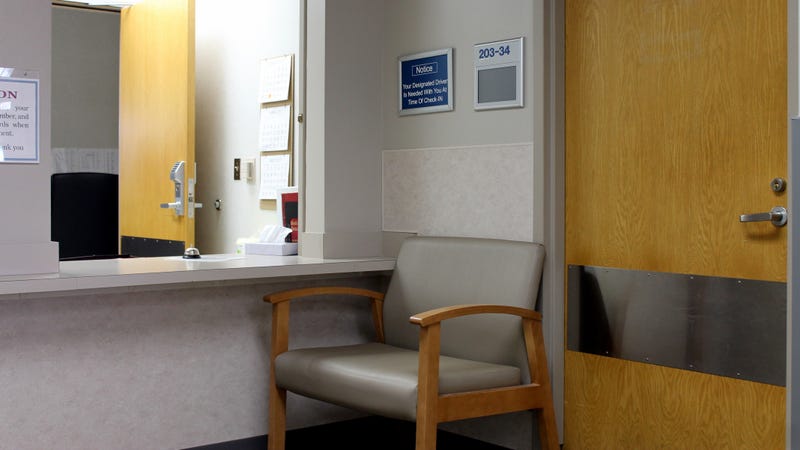
Less than three months into being open at 1020 West Broadway Avenue in Minneapolis, Community Medical Services has already treated 100 opioid patients as the clinic continues to see the impacts of the dangerous and deadly opioid epidemic.
Community Medical Services (CMS) opened the clinic on October 31 as a place to help people struggling with opioid addiction. Liz Scott, the clinic's treatment director, believes the street outreach prior to the clinic opening is what has brought such a high number of patients to the clinic.
"It tells us that there is a definite need," Scott said on Tuesday, after treating the clinic's 102nd patient in three months. "A huge referral that we're obtaining is we did a lot of street outreach in this neighborhood before we opened. Our street outreach coordinator and I were out on the streets weekly, sometimes multiple times per week just meeting people and making sure they had what they needed, training people on Narcan, and treating overdoses if they occurred."
Treatment at the clinic begins with a pre-screen and then a meeting with an on-site counselor. Hours at the clinic run 7:30 a.m. through 6:30 p.m. Monday through Saturday.
"We're really reducing those barriers of treatment by being open longer," Scott said. "It takes some time and the patient, counselor, and their doctor decide what kind of method and dose they want to be on. They then work with their counselor at least once a week for the first ten weeks of treatment. It can last as long as that patient needs it."
Data from the Minnesota Department of Health shows opioid-involved drug overdose deaths rose by three-percent in 2022 from the previous year.
"I think the state's moving forward with the harm reduction bill with $60 million, some safe use sites, and some understanding having people who have maybe gone through treatment out on the streets helping people. There's a list a mile long of all the services people need. Having spots that are designated for opioid treatment and then breaking off into housing, counseling, and metal health. Sometimes it's the whole thing, sometimes it's just one of the pieces."
The increased demand for treatment spotlights the need for trained drug and alcohol counselors. According to Scott, counselors can take on a caseload of 60 people at one time meaning the demand is straining opioid treatment programs.
"A lot of people are seeking treatment on their own," Scott said. "A lot of people just don't know where to start. They might have a number of issues being homeless, needing mental health, not having access to proper psych meds, or therapy that they feel comfortable going into."
CMS will open a second clinic in Roseville at the end January.
"During winter there's a lot more issues going on, a lot more depression and anxiety issues so we tend to see maybe a different group, but it's been pretty consistent through seasons. We're just grateful to be here and helping the community. We're excited to be opening in Roseville so we can help Ramsey County."
